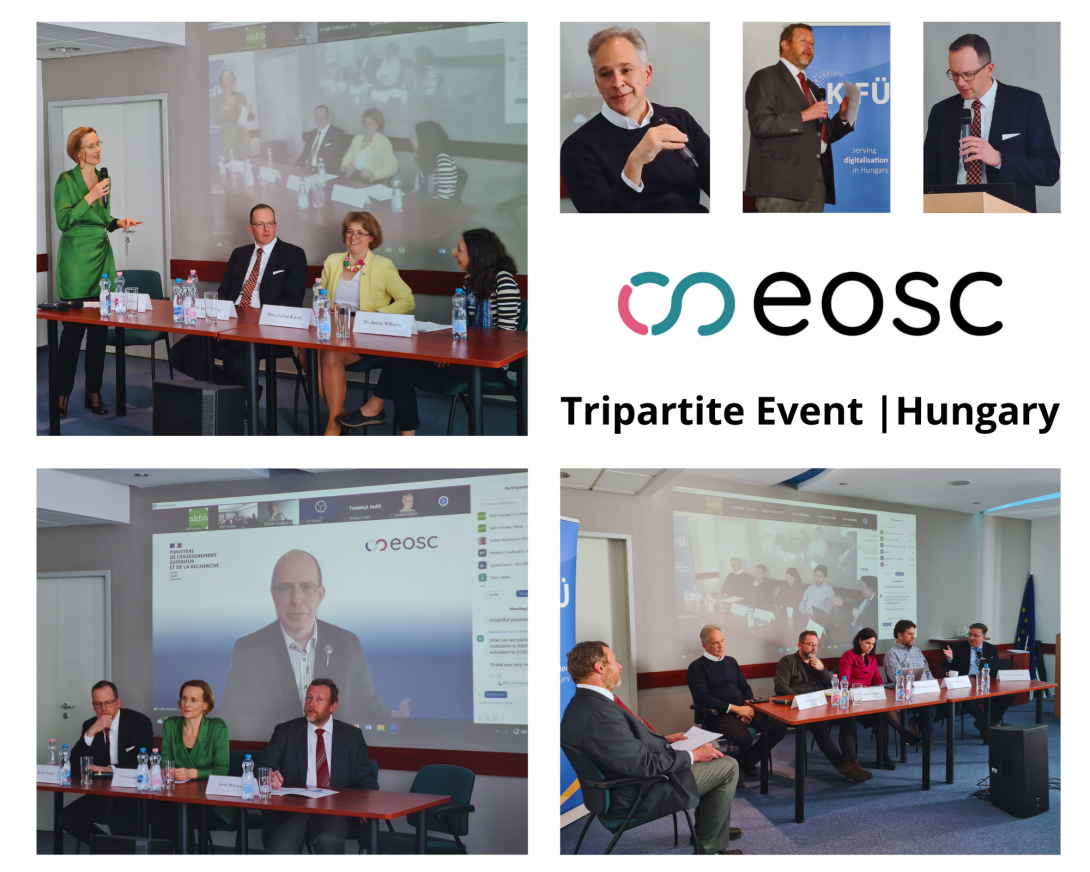The National Research, Development and Innovation Office (NRDIO) hosted a 'Tripartite Event' supported by the European Commission (EC) and the European Open Science Cloud (EOSC) Association that provided a platform for participants to discuss the policies and best practices linked to Open Science.
At the one-day-long hybrid event, a European Commission officer presented the EC’s position on Open Science and EOSC, and EOSC representatives spoke about the future of EOSC and the focal points of its activities. Hungarian tasks were reported by the Governmental Agency for IT Development (KIFÜ), which represents Hungary in the EOSC.
In the afternoon, the support for Open Science and FAIR data management were highlighted in the first panel discussion, which was attended by representatives of the following research infrastructures:
- National Laboratory for Digital Heritage,
- ELI,
- ELKH Cloud,
- OpenAIRE,
- OpenBioMaps.
It is worth noting that the National Position Paper on Open Science , initiated by NRDIO, was drawn up in 2021, to which many governmental and scientific institutions joined. Róbert Lovas, ELKH Cloud project director emphasized that the ELKH Cloud research infrastructure was built during this period, which provides the Hungarian researcher community with high-performance, flexible scientific computing capacity through cloud services. ELKH Cloud is among the Top 50 excellent research infrastructures in Hungary, and it is integrated into the EOSC Compute Platform through the H2020 EGI-ACE project. The ELKH Cloud was launched and is operated by SZTAKI and the Wigner Research Centre for Physics. In addition to computing resources, the ELKH Data Repository Platform (ELKH ARP) will soon be available to researchers, which supports the continuous and long-term research data management of the entire Eötvös Loránd Research Network but is also open to other institutional use cases.
It was vocalised that in Hungary, the application of Open Science encounters challenges and barriers on a daily basis. The implementation of Open Science requires funding and other resources. Also, it is somewhat different from the traditional research culture, as it emphasizes sharing research work openly. It was also addressed that the legal and ethical background for addressing issues such as data protection or intellectual property rights should be also in place already and that training and knowledge exchange in due time could be considerable tools for eliminating such obstacles.
At the end of the day, the second panel discussion presented the practical application of the Open Science directive from the perspectives of funders and institutes, which were presented by representatives of the European Commission, NRDIO, the Library and Information Center of the Hungarian Academy of Sciences (MTA KIK) and the Hungarian Young Academy (HYA).
